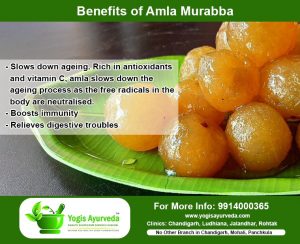TULSI
Plant kingdom is known to have 5000,000 plant found all over the globe. It is estimated that about 80% of population is depend upon the plant derived pharmaceutical. Tulsi plays an important role in Hindu religion. One of its synonyms is vishnupriya which means Tulsi pleases lord Vishnu. In India Tulsi is found in everyone home they worship Tulsi. In English it is known as holy basil. Botanically this plant is Ocimum sanctum and it belongs to the family Lamiaceae. It plays an important role in Ayurvedic system of medicine because of its medicinal properties. Many researches have been done on this plant and this plant is recognizing for its amazing therapeutic value. There are two types of Tulsi one is vanya which means wild and other one is gamya which means grown in homes. Tulsi is very much popular as home remedy such as respiratory disorders, wound, liver disease, hiccups, skin diseases, bronchitis, fever etc.
Tulsi grows in both warm and tropics region. This plant is cultivated and distributed throughout India. Plant of Tulsi is erect, branched, and fragrant and grows up to 30-60 cm. the leaves are aromatic, simple, soft and green in color. The flowers of Tulsi are small and purplish in color. Taste of the plant is bitter and seeds are small and reddish yellow in color.
Phytoconstituents:
Tulsi contain volatile oil, rosmeric acid, flavonoids, ursolic acid, phenolic compounds, eugenol, epigenin, carvacrol, linalool, thymol, myrcene, limonene, camphene, cincole, methyl eugenol etc.
Pharmacological action:
Following are the properties of Tulsi:
1. Anticancer activity:
It contains chemical constituent such as eugenol, rosmaric acid which helps to fight against cancer cells. It prevents skin, liver and lung cancer. It prevents radiation induced DNA damage.
2. Heart tonic
Tulsi helps to increase the circulation of heart where congestion occurs. It has a vasorelaxing action. It lowers the cholesterol level and enhances the blood circulation.
3. Skin diseases
When Tulsi paste applied on the skin it helps to treat the ring worm infection. If taken externally with saffron then it helps to get rid of chicken pox.
4. Anti diabetic activity
The aqueous extract of whole plant is useful to lower the blood sugar level and it controls diabetes mellitus.
5. Anti tubercular activity
It act against tuberculosis and inhibit the in vitro growth of mycobacterium tuberculosis.
6. Anti stress activity
In numerous literature surveys it is revealed that Tulsi has a very good anti stress activity because it exhibit anti stress activity by improving sorbitol dehydrogenas activity.
7. Act as antidote
Tulsi also act as antidote in dog bite, scorpion bite and insect bite in ancient system of medicine.
8. Anti inflammatory activity
Tulsi is known to have analgesic, antipyretic and anti inflammatory effect in acute and chronic conditions. It lowers the inflammation level.
9. Antipyretic activity
It has antipyretic activity and it act against typhoid, paratyphoid. It decreased the fever.
Traditional uses
In classic text, charka samhita it is mentioned that Tulsi is used in asthma, fever, bronchitis, headache, stomach disorder, inflammation, heart diseases, malaria, in poisoning, reduce inflammation etc.








